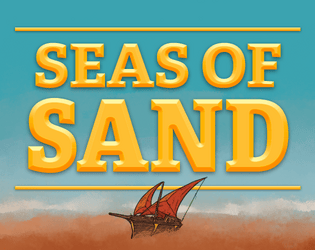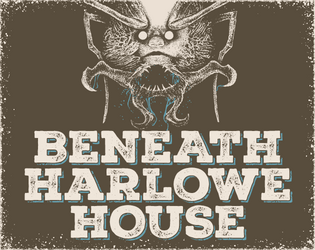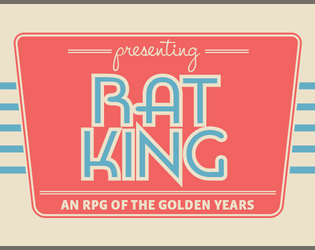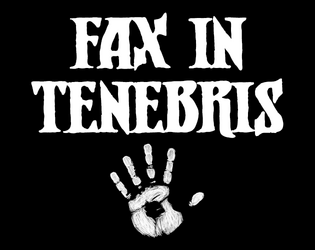It's back up in stock—and yes, you do get the PDF with the purchase of a physical copy!
Sam Sorensen
Creator of
Recent community posts
Good news! TIME AFTER TIME is back in stock at Spear Witch! You can get it here!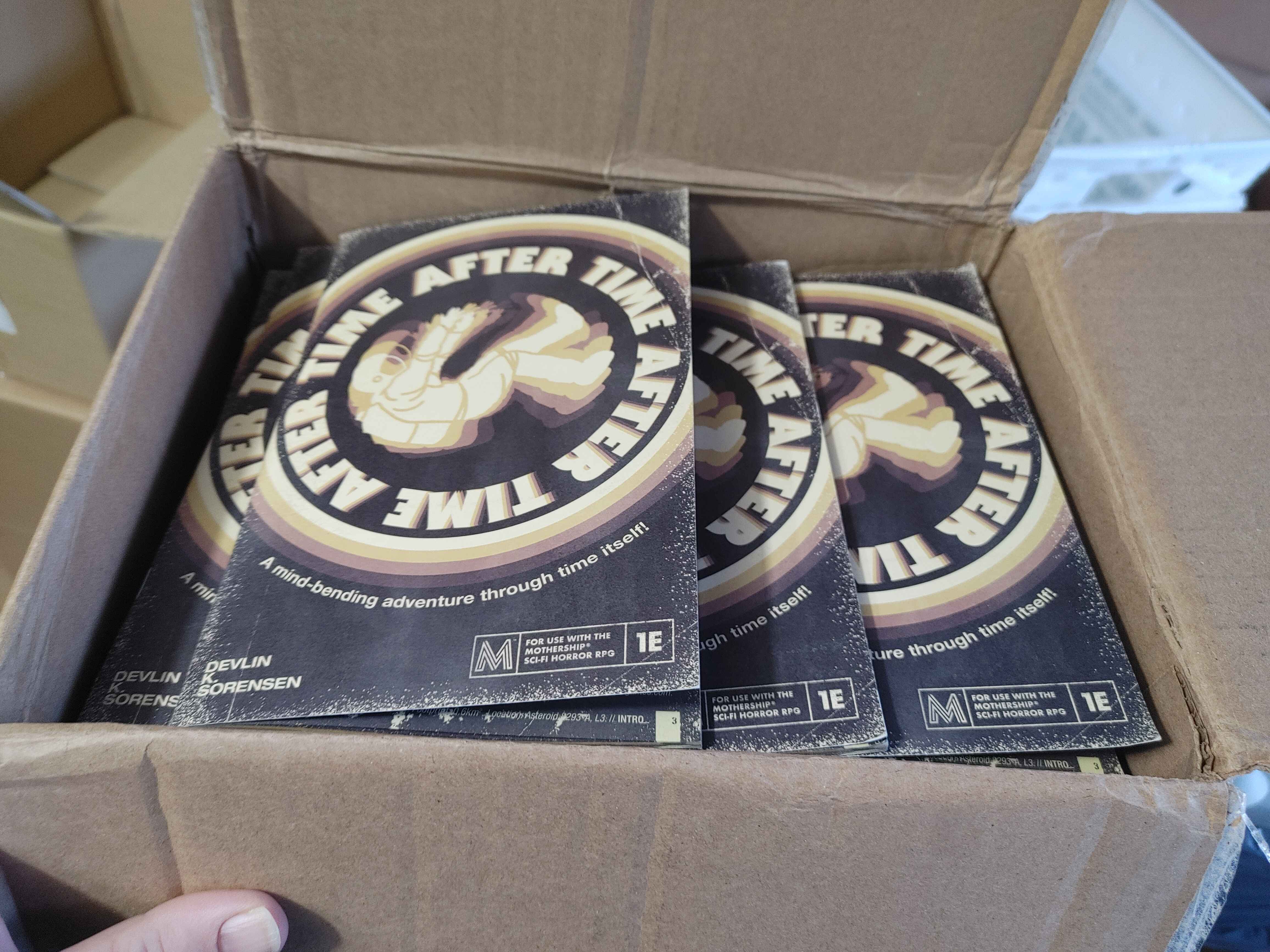
Hi! There are not unfortunately any readily form-fillable versions of the PDFs, nor are there any spreadsheets or anything similar, at least as far as I know.
If you have to play digitally, my advice would be to either import the PDFs as Google images and edit them directly, or just use a simple shared document—Fax characters aren't all that complicated, fortunately, so they're relatively easy to track.
Sorry again, though.
This is just how I like to run, but I only give Discontent for clues (and clue-level-type secrets) only when it clicks for the players. Like, if you offhandedly mention, "oh, yeah, the football team has no competition" and keep talking, wait for the players to investigate and examine and make the realization before their Discontent starts rising.
Consequences I like to add closer to the "finale," when players have a lot of secrets and are close to figuring the whole thing out. Think about, like, a Twilight Zone episode, of how things really start to go awry only as the protagonists get more and more involved in the problem.
But, critically, both of these are just how I, Sam, run. Other people—even my co-designers—will run the game differently. It's rules-light for a reason: do what you think is best!
I feel like this either wants to be a much longer story, like a proper novella, with lots of time to breathe and reflect, or this needs to be trimmed down significantly. You have a lot of characters—Victor, Will, their Mom, their Dad, Beth, Henry, Justine, the Monster—and a lot of threads and plots—Victor falling into death science, him grappling with his sexuality, his relationships with everyone else, his dead mother—the lists go on and on and on. As-is, it feels like all those threads are competing for space, and so none of them get the time and energy they deserve.
If you want to expand this, I feel like you need about three times as long for everything: meaningful conversations between characters, plenty of time to get used to each new setting, time for Victor to continue making bad choices and fall deeper into his own self-destruction, a chance for each thread and theme to wind in and out of each other.
If you want to cut this down, I'd cut about half your characters and about half your plotlines: either make this a story about Victor's own self-destruction and descent in villainy, or make this a story about Victor coming to terms with Henry and Beth and his own sexuality. Either one would be good and interesting, but right now they conflict, rather than complement.
Despite all that, I liked this piece a lot: your language is evocative, the choices feel both important but also fitting, the characters only get a little screentime but are appealing in what we do get. However you decide to develop this piece further, I think it'll only improve.
I really enjoyed reading through this—there was a good balance between Arsene Lupin-as-player-character and Arsene-Lupin-as-his-own-man; I had influence over him, but never so much that we lost sight of the man himself. It's a fun romp throughout; it's clear that you had a ton of fun writing this as you went.
My major is that, as I was playing, I think I ran afoul of just about every dead end, both the "try again" screens and the ones that were unfinished. For the latter, I'd recommend narrowing down the list of options: if you need to get to the laundry room, for example, I'd have every option loop back that way, somehow. As-is, there are too many branches, it's not surprising at all that you ran out of time.
For the former, the "try again" screens, I'd either cut them entirely (maybe just have "better" or "worse" options), or else gamify it even further. If you make it clear how and why I'm failing as player—like, say, if I choose Arsene's particular areas of focus early on, and then have options to use those to the maximum or not—it will feel significantly better than just "you chose wrong." As-is, it feels sort of arbitrary and needlessly punishing; in some twine games that can work, but here, as Arsene Lupin, bursting with panache and grace, it feels very off.
Despite those dead ends, I still really enjoyed playing through your piece. Nice work!
I quite like the action and pace of this story; it doesn't get bogged down in over-explaining details or world lore.
That said, it did sometimes feel like elements were being introduced with no context; the intro to the family works, but the introduction to the priest who immediately betrays the narrator is jarring. The fact that less that it takes less than ten minutes to go from "I am a simple dumpling-seller with strange powers" to "I am a semi-murderous fugitive" is a little abrupt. I would've liked more time to get used to the world as a whole, rather than leap straight into the action immediately.
Likewise, I'm very unsure of the setting. We get snippets—dumplings, political priests, golden statues—but very few concrete details to work from. Part of this stems from not having names for anything, but more than that I think it's just a lack of any broader context or setting. Other stories can get away with being set in our own normal world or some other clearly-referenced locale, but because this is an already-fantastical setting you might be muddying further, nailing down setting details will help set the stakes.
Still, I enjoyed the action and drama of the story. Make a few adjustments and you'll have something very strong to work with.
I quite like this; it captures that weird-but-consistent internal logic of a fairytale. I also agree with Jenny—being able to make choices outside of Regular Girl's own decisions is real interesting and engaging. And again, it matches the perspective-shifting of a fairytale.
I also liked the consistency, both in terms of how my choices impacted the story but also in the frequency and style of choices; it all felt quite well put-together and planned.
My main issues were in the tenses of the piece—most of the time it was past tense, but from time to time it shifted to present and then back again. It's an easy fix, but committing to one will help a lot.
My other, larger issue is that it's not clear to me what the stakes of the story are, or how I'm positioned within it. When the demon first arrived and offered the deal, I—Regular Girl, forced to scrounge to survive—I was ready to take it (evil stepsisters exist to be punished, no?). But as the story progressed, it wasn't clear to me exactly how evil Susan and Mrs. Girl really were, or what my extra set of eyes meant, or if I even could kill Susan at all. I liked the tone, I liked the style, but the actual plot and progression seemed to meander in ways that confused me.
Still, overall, you've got a strong basis here and an excellent hook.
This was definitely an ambitious project—props for that.
I'm not necessarily 100% convinced that it all hangs together. The core of the relationship, between our two protagonists, is very solid, and it works well almost the entire way through. The rest of it, though, the Spear and the initial mystery and the odd meta-textuality, I'm not entirely sure of.
Initially, the bait-and-switch works: with the initial case, I thought I was just defining parts of the world as I would in any other game, but as the Spear revealed that it was actually it that allowed me that power, I was confused and alarmed. That moment really worked: it plays with the text-as-text and the fundamental interactivity there, and that's really clever.
After that, though... I'm not sure it all coheres. The fact that it takes such an arduous, specific explanation to cover Izanagi's power and Izanami's exceptionalism is rough. It shifts a fun-but-still-tense mystery drama to a heavy, weird fantastical story, and I felt myself getting lost. After the Spear explains the original myth I sort of understood it better, but the change comes so hard and so fast out of left field that I'm not sure it works.
I would recommend that you either drastically cut down the beginning mystery and focus entirely on the cave and the Spear, or else trim down the cave-and-Spear significantly, and have the mythological allegory stay firmly allegorical. As-is, your piece is caught between two extremes, and both suffer for it.
Still, there's a lot of potential here, and with some work I think it could be great.
Hello—Sam here! I liked this piece quite a bit; transplanting Gatsby into modern-day collegiate New York is an interesting shift, and I think you preserved the mystery and allure of Gatsby-the-myth very well.
As for the pacing, the only issue that I noticed was some odd self-reflection; Nick talks about how he'd been at the party for quite a while and heard so much about Gatsby, yet to me, playing it, only a few minutes had passed. What I might potentially recommend as a possible solution is have more snippets of scenes (like with Jordan or the first drink or the weird library nerd), but shorten those snippets. Hitting the reader with a whole boatload of short, sharp moments will help the party and Gatsby-mythos have more space and time, but not actually much more in the way of word-count.
Other than that, I'd be sure to do another pass for sentence structure and clarity, and double-check your flowchart—I got caught in a loop where I ended up talking to Jordan twice. Still, your piece is working well, and I'd love to read more.





